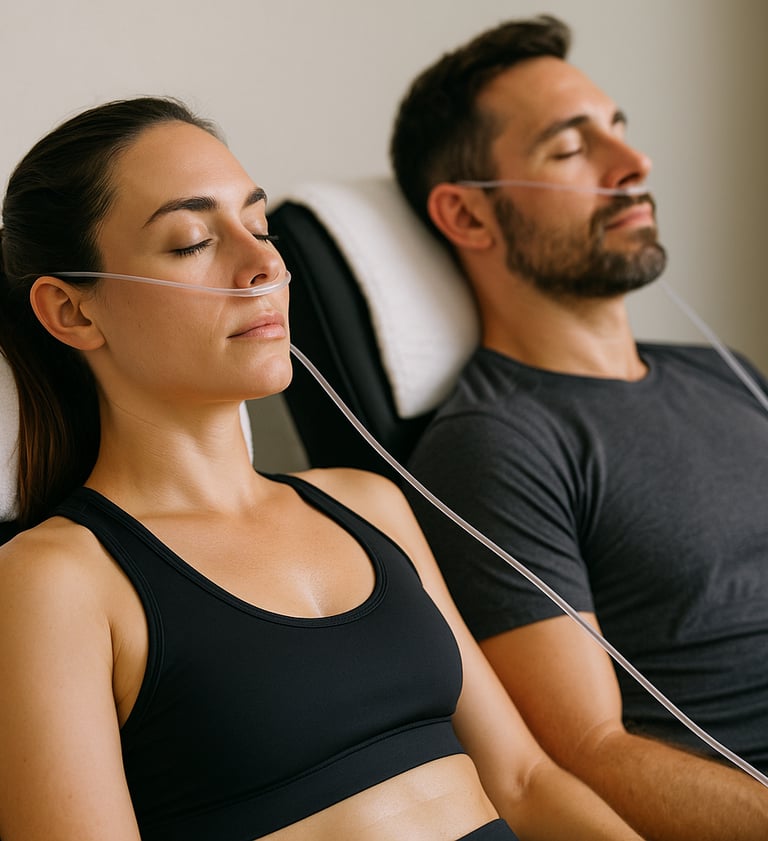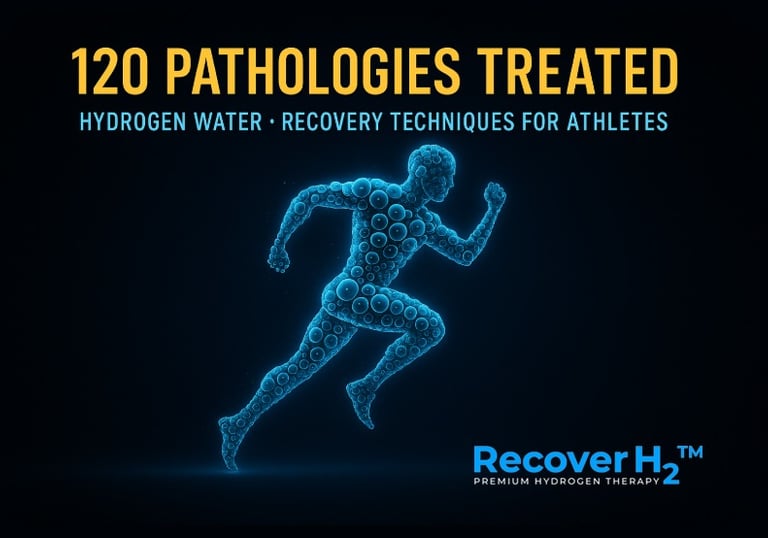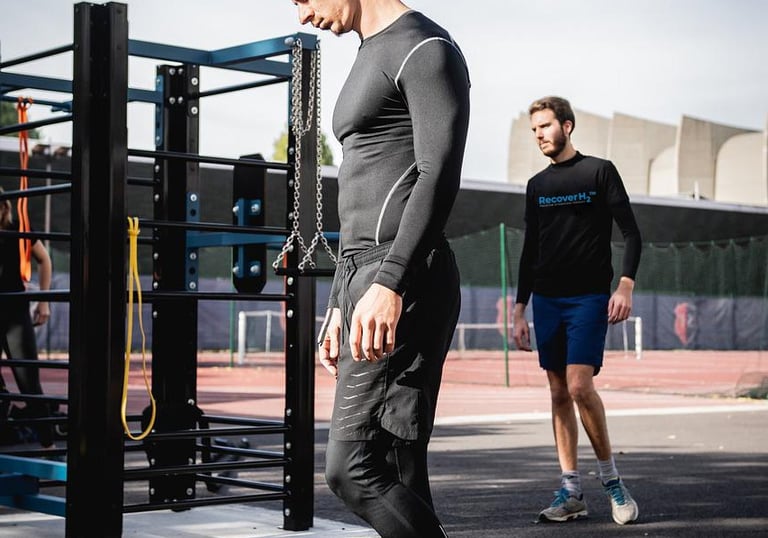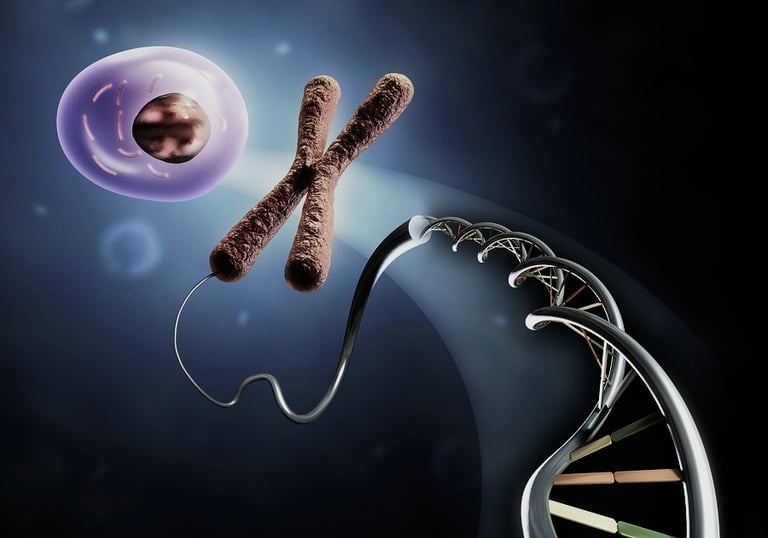Muscle Recovery and Athlete Performance:
The Breakthrough in Sports Recovery Techniques
Introduction: Why Recovery Defines Performance Every athlete trains hard, but what separates good results from great results is not just the hours in the gym — it’s the recovery routine. Without a solid muscle recovery strategy, athletes face fatigue, injury, and stagnation.


Muscle Recovery and Athlete Performance: The Breakthrough in Sports Recovery Techniques
Introduction: Why Recovery Defines Performance
Every athlete trains hard, but what separates good results from great results is not just the hours in the gym — it’s the recovery routine. Without a solid muscle recovery strategy, athletes face fatigue, injury, and stagnation.
That’s why sports recovery has become one of the most important pillars of performance. From post workout recovery nutrition to cryotherapy recovery sessions, the right recovery techniques help athletes train harder, perform better, and extend their careers.
But a new tool is emerging — one that works at the cellular level to accelerate healing, reduce fatigue, and optimize performance: respiratory hydrogen therapy.
The Core of Muscle Recovery: What Athletes Search For
Post Workout Recovery
After intense training, muscles experience micro-tears, inflammation, and oxidative stress. The post workout recovery phase is where your body repairs itself, rebuilding stronger fibers and replenishing glycogen stores. Skipping this process leads to muscle breakdown instead of growth.
Sports Recovery Routines
Elite athletes rely on structured recovery routines that may include:
Cryotherapy recovery (cold therapy to reduce inflammation)
Compression recovery sleeves (improving circulation and oxygen delivery)
Foam roller recovery techniques (breaking up lactic acid and scar tissue)
Sleep optimization (deep sleep is the foundation of recovery)
Nutrition for recovery (protein, carbs, and hydration to rebuild)
Injury Recovery
Injuries derail careers. That’s why injury recovery has become a science of its own. Proper protocols accelerate rehabilitation while preventing long-term damage. From ankle sprains to tendonitis, recovery timelines depend heavily on how effectively inflammation and oxidative stress are managed.
The Missing Piece: Cellular-Level Recovery
Most athletes focus on surface-level recovery techniques: stretching, massage, ice baths. These are effective but only address the symptoms, not the cause. The real damage happens at the cellular level, where oxidative stress weakens mitochondria (your cell’s energy factories) and fuels inflammation.
This is where respiratory hydrogen therapy comes in — the Trojan Horse breakthrough that goes beyond traditional recovery methods.
Respiratory Hydrogen Therapy: The Science Explained
Respiratory hydrogen therapy (RHT) involves inhaling molecular hydrogen (H₂) gas through a nasal cannula or mask. Unlike hydrogen water, which passes through digestion, inhalation delivers hydrogen directly into the bloodstream via the lungs — fast, efficient, and powerful.
How It Repairs Cells
Neutralizes oxidative stress: Targets the most harmful free radicals (hydroxyl radicals, peroxynitrite) without blocking beneficial molecules.
Protects mitochondria: Ensures energy production stays high, even under intense training loads.
Reduces inflammation: Calms tissue stress after workouts and accelerates injury recovery.
Supports DNA repair: Protects cells from long-term damage, helping athletes stay in peak condition.
References & Evidence
Hydrogen-rich water supplementation promotes muscle recovery in elite fin swimmers — Frontiers in Physiology, 2024 Frontiers+2PMC+2
Hydrogen-Rich Water Decreases Muscle Damage and Improves Power Endurance in Elite Athletes: a randomized, double-blinded, placebo-controlled trial (female elite athletes) — published via PMC (Ogannisyan et al.) PMC
Hydrogen-rich water supplementation enhances muscular endurance
A study with trained individuals over 8 days showed that HRW supplementation improved muscular endurance performance. FrontiersHydrogen-rich water reduces exercise-induced muscle damage via bathing
In a pilot study, whole-body bathing in supersaturated HRW reduced markers of muscular damage and alleviated muscle soreness compared to control water. PMC+1Hydrogen gas inhalation prior to high-intensity training
An RCT found that H₂ inhalation helps maintain nitric oxide (NO) signaling and reduce inflammation and oxidative stress after high-intensity training. PubMedAlleviation of exercise-induced lung & systemic stress responses
A study in athletes showed that H₂ inhalation could mitigate oxidative stress, inflammation, and markers of lung injury after strenuous exercise. PubMedHydrogen-rich water improves muscle function and reduces lactate & soreness
An acute intermittent HRW hydration protocol in resistance training reduced blood lactate levels, improved function, and lessened delayed-onset muscle soreness (DOMS). Lippincott JournalsTherapeutic potential in muscle atrophy
In a rodent model of immobilization, HRW improved muscle mass, strength, reduced inflammation, and minimized oxidative stress during recovery. PMC+1Review of molecular hydrogen’s cellular & regenerative effects
A comprehensive review covers how H₂ affects stem cells, cellular repair, antioxidation, and multiple organ systems. PMCMeta-analysis and clinical overview of H₂ therapy in humans
A review summarizing 81 clinical trials and 64 human studies, describing effectiveness, safety, and application pathways. MDPIEffects of molecular hydrogen on exercise fatigue & performance
Some human crossover studies support improved performance and fatigue resistance under hydrogen supplementation. Europe PMCSupplementation studies before exercise
Research on H₂ intake protocols (pre, during, post exercise) and its effects on anaerobic/aerobic performance, strength, and recovery. Frontiers
When to Use Respiratory Hydrogen Therapy
Pre-Workout: Prepares the body by reducing oxidative buildup, giving athletes a stamina edge.
Post Workout Recovery: The ideal window — 20–60 minutes after training — when oxidative stress peaks.
On Recovery Days: Enhances active recovery routines by keeping inflammation low.
In Injury Recovery: Daily inhalation supports faster rehabilitation timelines.
Athletes typically use 20–40 minute sessions, 4–6 times per week, while medical protocols sometimes use longer daily sessions.
Who Benefits Most from Hydrogen Therapy?
Elite Athletes: Faster turnaround between games or competitions.
Endurance Athletes: Better oxygen efficiency and less fatigue during training cycles.
Injury Recovery Patients: Quicker reduction in inflammation and improved healing.
Wellness Seekers: Anti-aging effects, better sleep recovery, and improved vitality.
Reference: Hydrogen therapy has been studied across 120 pathologies, including inflammatory diseases, metabolic syndromes, and sports fatigue (Ohta, Pharmacological Research, 2023).
Ohta, 2020 — Annals of Translational Medicine: “beneficial effects of H₂ were reported in >170 disease models and ~70 human diseases.” Annals of Translational Medicine
Johnsen et al., 2023 — Molecules (MDPI): synthesizes 81 clinical trials and 64 human-study publications across major disease areas (cardiovascular, respiratory, cancer, CNS, infections). PMC
Mechanisms/administration review (2025) summarizing delivery methods and clinical use across organ systems (good for background). PMC
“Hydrogen therapy has been investigated in more than 170 disease models and over 70 human diseases, spanning inflammatory, metabolic, neurological and cardiopulmonary conditions, with 80+ clinical trials in humans.” Annals of Translational Medicine
Ohta S. Will the hydrogen therapy be approved shortly? Annals of Translational Medicine (2020) — statement on >170 models / 70 human diseases. Annals of Translational Medicine
Johnsen HM et al. Molecular Hydrogen Therapy—A Review on Clinical Studies and Outcomes. Molecules (2023) — 81 clinical trials + 64 human publications overview. PMC
Jin J et al. Molecular Hydrogen Therapy: Mechanisms, Delivery Methods. (mechanisms + delivery, clinical context). PMC
Integrating Hydrogen into Recovery Routines
Combine with Proven Techniques
Nutrition for recovery → hydrogen boosts nutrient efficiency.
Cryotherapy recovery → combines inflammation control with oxidative stress reduction.
Compression therapy → improves circulation while hydrogen repairs cells.
Sleep recovery → hydrogen supports deeper, restorative sleep.
Lifestyle Matters
Hydrogen therapy is powerful, but results depend on how you live your life:
Eat smart: Balanced macros, hydration, anti-inflammatory foods.
Sleep well: 7–9 hours for growth hormone release and tissue repair.
Train wisely: Structured load + rest cycles to prevent overtraining.
Recover daily: Hydrogen + traditional recovery ensures consistency.
Why Athletes Should Avoid Generic Devices
⚠️ Many generic hydrogen machines use low-quality metals or plastics. When exposed to electrolysis, these materials may leach toxins — defeating the purpose of therapy and even posing long-term health risks.
RecoverH₂™ is built with premium medical-grade materials, ensuring pure, safe hydrogen therapy. For athletes, safety is everything: you want a device that supports longevity and maximum results, not one that risks your health.
Conclusion: The Future of Athlete Recovery
Athletes are searching for better ways to manage muscle recovery, post workout recovery, and sports recovery routines. Traditional methods are still valuable — but the next leap comes from cellular-level repair.
With proven results in over 120 pathologies and decades of research in Japan and Europe, Respiratory Hydrogen Therapy is emerging as the gold standard for athlete recovery, endurance, and performance optimization. If you train hard, you must recover smarter. Add hydrogen therapy to your recovery plan, and unlock the next level of performance.
Frequently Asked Questions on Muscle Recovery & Respiratory Hydrogen Therapy
Q1. What is the best way to speed up muscle recovery after workouts?
The best post workout recovery techniques include proper nutrition (protein + carbs), hydration, compression therapy, cryotherapy, sleep, and active stretching. Increasingly, athletes are adding respiratory hydrogen therapy because it targets recovery at the cellular level, reducing oxidative stress and inflammation faster than surface methods.
Q2. How does respiratory hydrogen therapy help athletes?
It accelerates muscle recovery by neutralizing damaging free radicals, protecting mitochondria, and reducing inflammation. This leads to less soreness, faster bounce-back, and better endurance, making it ideal for sports recovery routines.
Q3. How often should respiratory hydrogen therapy be used?
Athletes typically use it 20–40 minutes post workout, 4–6 times per week. Endurance athletes may also use it pre-workout to prepare their bodies for high oxygen demand, while injured athletes can benefit from daily sessions for faster healing.
Q4. Is hydrogen therapy safe compared to other recovery methods?
Yes. Molecular hydrogen is natural, non-toxic, and has been researched for over 20 years in Japan and Europe. Unlike generic hydrogen machines, which may use unsafe materials, premium devices like RecoverH₂™ ensure pure, medical-grade hydrogen therapy with no risks of contamination.
Q5. Can hydrogen therapy replace other recovery methods?
No. Hydrogen therapy is best used as part of a complete recovery plan — alongside nutrition, sleep, compression, and cryotherapy. Think of it as the missing piece that enhances all other recovery strategies by working at the cellular level.
Q6. Who can benefit from respiratory hydrogen therapy?
Athletes: Faster muscle recovery, reduced fatigue, better endurance.
Injury recovery patients: Reduced inflammation and quicker healing.
Wellness seekers: Anti-aging, energy, and long-term cellular health.







